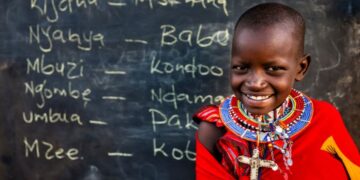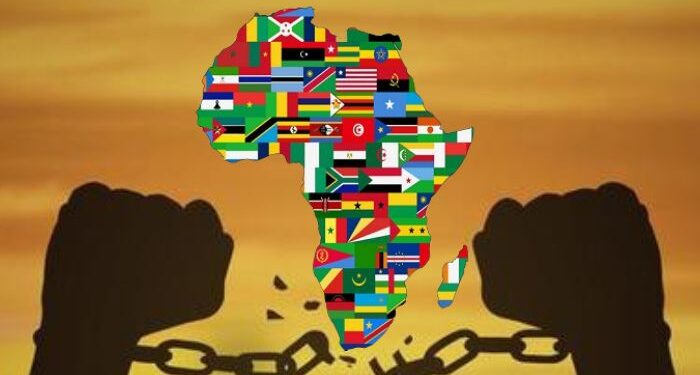Is Africa going for a second Independence? The general understanding of independence is that a country is free from the shackles of colonial powers. But the question remains, is Africa truly free from the control of the Western world? Well, the answer to this is obvious. Consequently, the demands of the several military coup plotters on the African continent and the push by some pan-Africans are in the light of what we could rightfully describe as a ‘Second Independence for Africa.’
A Quick Look at Africa’s Colonization by Europe
Africa as a whole experienced different forms of European aggression between the 1860s and 1900s, ranging from diplomatic pressures to military invasions by European nations including Britain, France, Belgium, and Portugal. Moreover, 90% of Africa’s lands and 80% of its population were under European influence by 1914.
Sadly, the Europeans ignored the cultural variations among Africa’s numerous unique ethnic groups and arbitrarily drew borders separating their colonial lands to suit their needs. Due to this, some tribes were compelled to live in two or more separate colonies, while others were made to coexist in the same colony with individuals they didn’t like. Countries like Somalia, Rwanda, and Burundi had to face a tremendous deal of difficulties as a result of these boundary lines.
Until after World War II, when many of the European colonial powers had been devastated by the devastation of intercontinental conflict, European dominance over Africa persisted.
The aspirations for freedom in Africa increased as the Second World War came to a close. At that point, the European powers in Africa had to decide whether to grant freedom to their colonies or engage in costly colonial warfare.
Why Africa Should Push for Another Independence
Several African countries gained independence in the 1950s and 1960s. This happened to be the period of intense Cold War hostility between the United States and the Soviet Union.
The two Cold War rivals made large donations of economic and military help to more than 40 African republics that were shedding European colonial control in an effort to widen their domains of influence.
Many of the newly independent African countries attempted to educate their populations and build self-sufficient economies by heavily relying on the foreign aid provided by the Soviet Union, the United States, and its allies. However, these aids were accompanied by subtle selfish demands that invariably kept most of these African nations under the control of their former masters.
Consequently, the colonial masters of several countries found a way to manage and hold onto the economic clout of several African countries. By implication, post-colonial Africa continued to experience the domination of the Western-styled economic model that was prevalent during the period of colonialism.
Additionally, the distinction between complete and absolute independence has become fuzzier as a result of France’s prolonged links with Francophone African countries like Cameroon, Togo, and the Ivory Coast. Similar to this, there is cause for concern regarding the relationships between Britain and Anglophone African countries like Ghana, Nigeria, and the Gambia.
Meanwhile, several African leaders have made attempts to establish democratic and economic reforms in their countries over the years. This is what some people have referred to as “second independence.”
In order to achieve this ‘second independence’, some African leaders have done their best to erase the legacy of European colonialism, the influences of the Cold War, and the more recent misrule by Africans themselves.
SEE ALSO: https://weafrique.com/rise-fall-valentine-strasser-sierra-leone/
Military Coups in Africa and Plans to Cut Away from France and the West
Military takeovers were common throughout Africa in the years following independence, and there are worries that this trend is beginning to return.
The movement for second independence may just be an afterthought but it is also alongside other factors, interpreted in the body language of several coup plotters in countries like Gabon, Mali, Burkina Faso, Guinea, and Niger.
For instance, President Assimi Goïta who led the 2021 Malian coup d’état expelled the French ambassador to Mali and broke the country’s defense accords concluded in 2013 with France.
Similarly, the likes of Burkina Faso’s Thomas Sankara will be remembered for renaming his country from Upper Volta, which used to be a French Colonial name to Current Burkina Faso which means Land of Incorruptible People.
Another indicator that Africa may be heading towards second independence is reflected in the policies of Ibrahim Traoré, who became the interim leader of Burkina Faso after the 30 September 2022 coup d’état which ousted interim president Paul-Henri Sandaogo Damiba. Just like Sankara, Traoré expelled the French forces assisting in fighting the local insurgency from Burkina Faso and has been vocal against imperialism and neocolonialism.
It will be recalled that On 26 July 2023, Abdourahamane Tchiani led the presidential guards of Niger in detaining incumbent president, Mohamed Bazoum in the presidential palace in the capital Niamey as part of the 2023 Nigerien coup d’état. Like his other counterparts, Tchiani’s administrative policies frowned at the systemic imperialism and neo-colonialism by France and other Western worlds on his country and other African countries.
Within a few days of his assumption of power, the French and American embassies were closed and the French embassy’s walls and gates were set ablaze by apologists and protesters in Niger.
In addition to these developments, Francophone Africa has in recent years expressed resentment for the former colonial power, with some of the countries cutting ties with France and expelling French diplomats from their soil.
Could this be interpreted as Africa going for a second independence? Please share your thoughts.




















